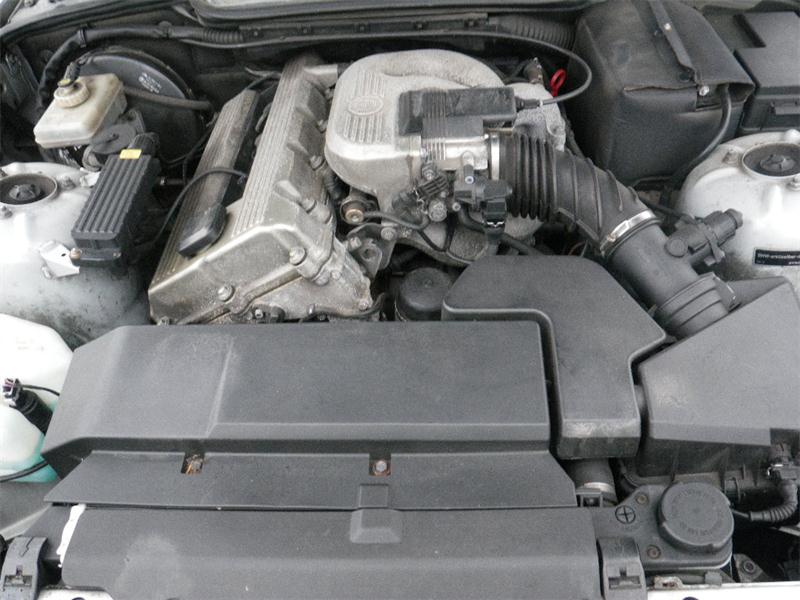BMW 318ti: Performance Specs and Characteristics Explained
Essential Factors To Consider for Choosing the most effective Engine for Your Requirements
In the world of selecting the suitable engine to fulfill your requirements, several essential elements demand thorough consideration to guarantee ideal performance and effectiveness. From the nuanced balance between power and efficiency to the often-overlooked elements of upkeep and solution demands, each aspect plays a critical role in identifying the most appropriate engine for your certain requirements.
Power and Performance
When reviewing engines for ideal efficiency, it is crucial to prioritize both power result and efficiency. Effectiveness refers to just how well the engine converts fuel into useful energy. By thoroughly reviewing both power and efficiency, you can choose an engine that delivers optimal performance and meets your demands efficiently.
Gas Performance and Economic Situation
Fuel efficiency refers to the engine's capacity to transform gas right into power with very little waste, straight impacting operating costs and environmental sustainability. Engines with greater gas effectiveness not just minimize fuel expenditures however also decrease carbon exhausts, adding to a greener procedure.

Compatibility and Application
Taking into consideration the fuel performance and economy of an engine, the following critical aspect to address is its compatibility and application within certain functional contexts. Compatibility refers to how well the engine integrates with the general system or devices it powers.
In addition, the application of the engine is equally important. Various engines are designed for certain objectives, whether it be industrial machinery, marine vessels, autos, or power generators. Understanding the designated application enables the choice of an engine that can supply the needed power result, torque, and operational attributes. A high-revving engine designed for performance vehicles would not be appropriate for sturdy building and construction equipment that requires high torque at low rates.
Upkeep and Solution Needs
Upkeep and solution requirements play a crucial role in making sure the long life and optimal performance of an engine. Routine upkeep is important to stop failures, extend the life expectancy of the engine, and preserve its performance. When choosing an engine, it is essential to think about the supplier's advised upkeep schedule and the accessibility of solution facilities or certified specialists.
Factors such as the frequency of oil modifications, filter substitutes, and overall evaluations can dramatically influence the engine's efficiency. Some engines might require more frequent maintenance based upon their design and use, while others may have longer intervals in between maintenance find more checks. It is vital to adhere to these solution demands to stay clear of pricey fixings and unanticipated downtime.

Price and Budget Plan Considerations
Budget restraints typically play a considerable role in the decision-making procedure when choosing an engine for a particular application. When taking into consideration the cost and spending plan effects of selecting an engine, it is important to examine not only the preliminary acquisition rate but additionally the long-term costs related to maintenance, gas intake, and prospective upgrades or repairs. It is vital to strike a balance in between the upfront expense of the engine and its total pop over to these guys lifecycle expenses to make certain that the chosen engine continues to be financially sustainable throughout its functional lifespan.
Variables such as fuel integrity, performance, and toughness can directly impact the total expense of ownership of an engine. While an extra costly engine may have greater in advance prices, it might potentially result in reduced maintenance and fuel expenses over time, therefore providing far better value in the lengthy run.
Conclusion

Gas efficiency refers to the engine's capability to transform fuel into power with minimal waste, directly influencing operating costs and environmental sustainability.Variables influencing fuel efficiency consist of engine layout, combustion effectiveness, and general efficiency optimization. Additionally, choosing the proper gas kind and quality as recommended by the engine maker can better boost efficiency and extend engine life expectancy.
Engines with excellent serviceability features and easily available components can lower upkeep prices and minimize the time the engine is out of operation - bmw 318ti. It is vital to strike an equilibrium in between the upfront expense of the engine and its general lifecycle expenses to make certain that the picked engine continues to be monetarily lasting throughout its functional life-span